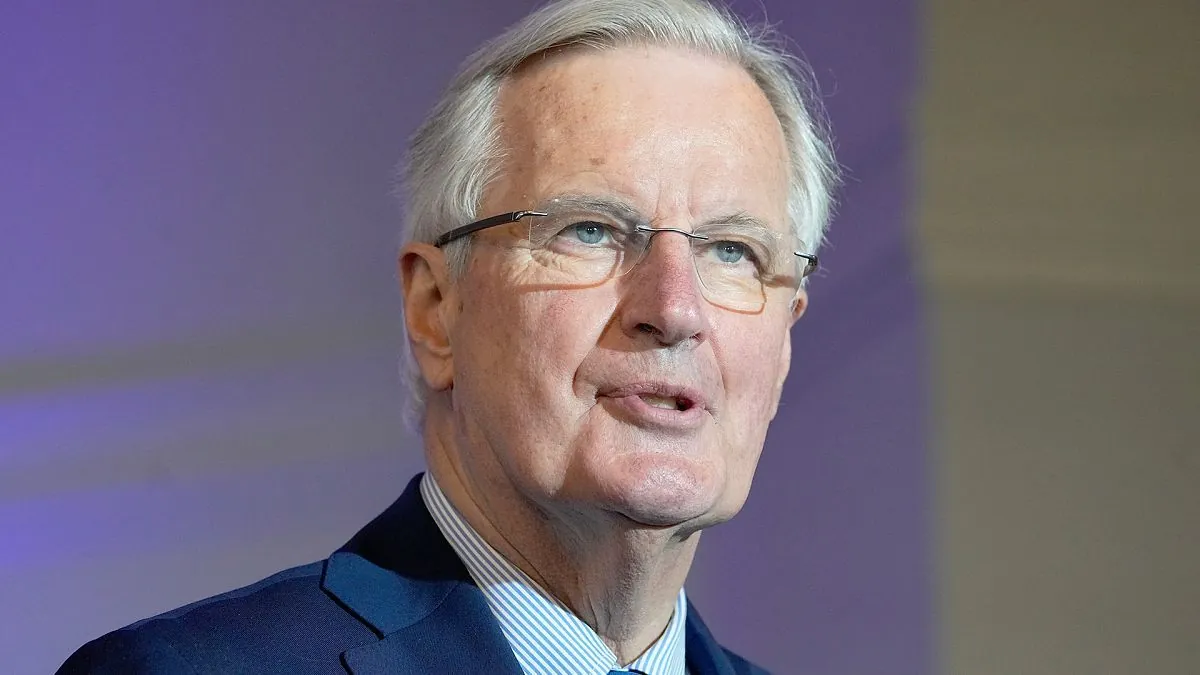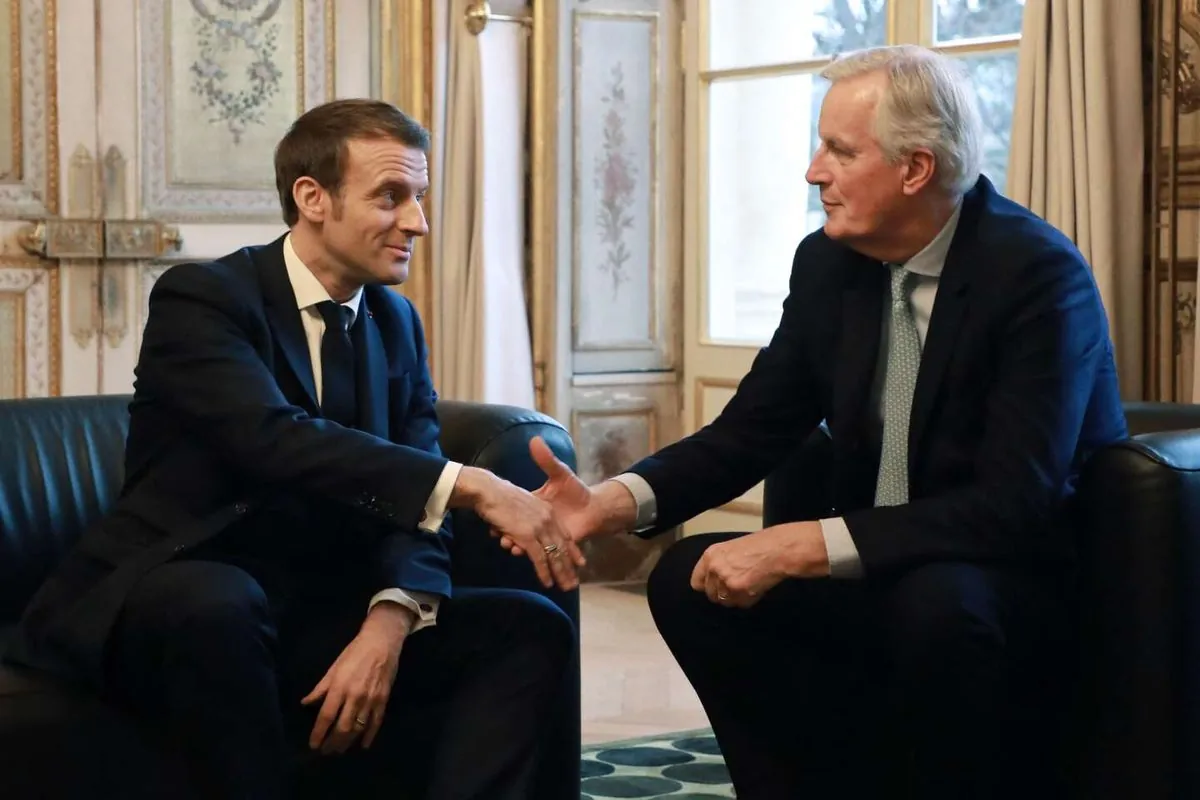Barnier's Challenges: New French PM Faces Budget Hurdles and Political Tightrope
Michel Barnier, newly appointed French Prime Minister, confronts immediate challenges including government formation and budget legislation. With a fragile parliamentary situation, Barnier must navigate political complexities.

Michel Barnier, the newly appointed French Prime Minister, faces a series of immediate challenges as he steps into his role. Nominated by President Emmanuel Macron on September 4, 2024, Barnier must navigate a complex political landscape while addressing pressing issues.
Barnier's first task is to form a new government, a process requiring Macron's approval. This task is particularly delicate given the lack of a parliamentary majority, necessitating careful consideration of ministerial appointments to avoid opposition backlash.

Following government formation, Barnier is expected to deliver a policy priorities speech to the National Assembly. This address may trigger a confidence vote, with 289 votes required in the 577-seat lower house to pass. The far-right National Rally's stance could prove crucial, as they've indicated a wait-and-see approach regarding immigration and voting system reforms.
"We will carefully evaluate Prime Minister Barnier's proposals on immigration and electoral reform before deciding our position."
Barnier's most significant challenge lies in drafting the 2025 budget legislation, due for submission by October 1, 2024. With the current deficit exceeding targets, Barnier faces difficult decisions regarding spending reductions and potential tax adjustments. The national finance watchdog is scheduled to review the budget figures by mid-September, adding pressure to an already tight timeline.
The budget bill's journey through parliament is expected to be contentious, likely extending until December 2024. Opposition parties may attempt substantial revisions, with left-wing factions advocating for widespread tax increases. The possibility of a no-confidence vote looms if dissatisfaction with the budget persists.
Barnier's appointment comes at a critical juncture for France's fiscal policy. As a founding EU member and Eurozone participant, France must adhere to European fiscal regulations, including deficit and debt limitations. Barnier's experience as EU Brexit negotiator from 2016 to 2021 may prove valuable in navigating these international obligations.
The political veteran's ability to balance diverse interests within France's multi-party system will be crucial. With the National Assembly comprising 577 seats and no clear majority, Barnier must skillfully maneuver to build consensus and avoid governmental instability.
As France's semi-presidential system places the Prime Minister in a position of responsibility to the National Assembly, Barnier's political acumen will be tested. His success in addressing these immediate challenges could set the tone for Macron's administration in the coming months, potentially influencing France's political landscape as it approaches the midpoint of Macron's second term.


































